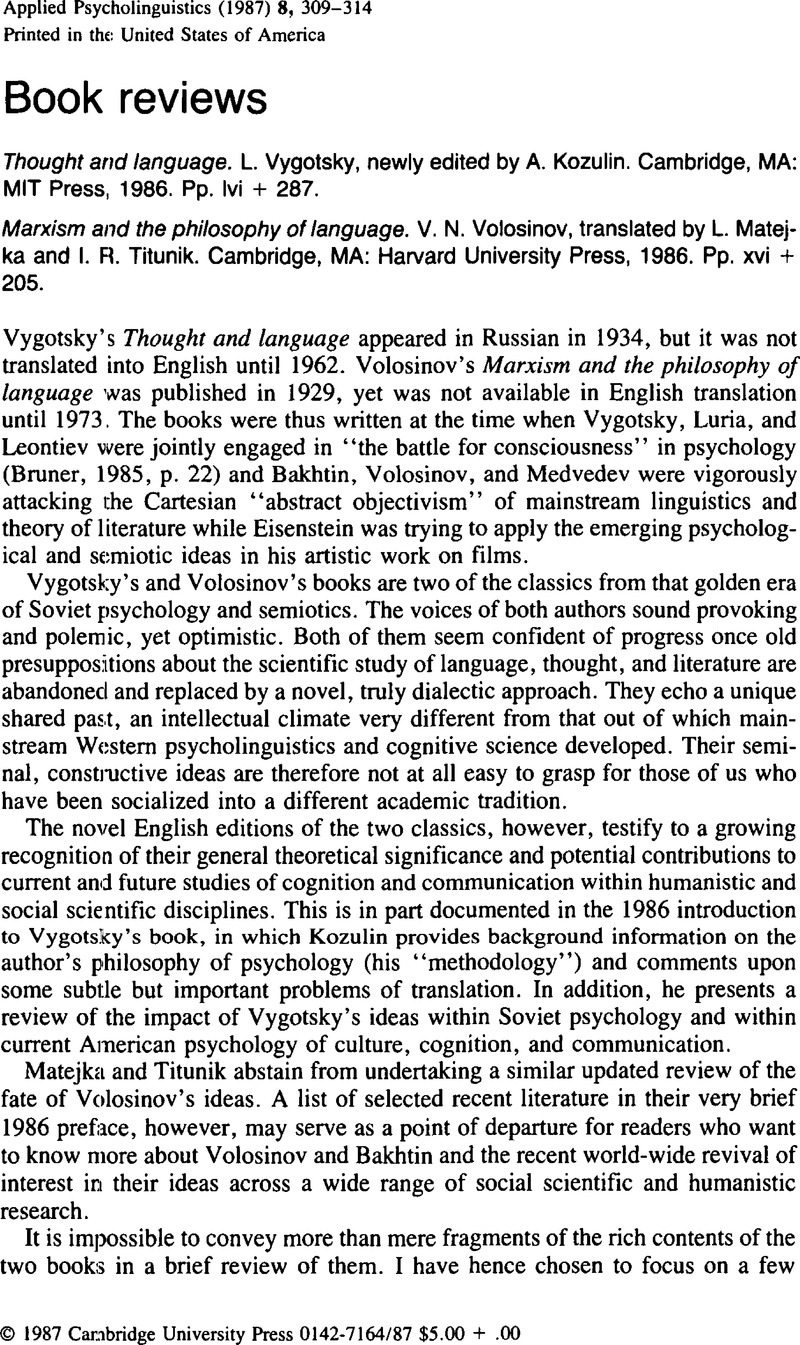No CrossRef data available.
Article contents
Thought and language. L. Vygotsky, newly edited by A. Kozulin. Cambridge, MA: MIT Press, 1986. Pp. lvi + 287. - Marxism and the philosophy of language. V. N. Volosinov, translated by L. Matejka and I. R. Titunik. Cambridge, MA: Harvard University Press, 1986. Pp. xvi + 205.
Published online by Cambridge University Press: 28 November 2008
Abstract
An abstract is not available for this content so a preview has been provided. Please use the Get access link above for information on how to access this content.

- Type
- Book Reviews
- Information
- Copyright
- Copyright © Cambridge University Press 1987
References
REFERENCES
Bruner, J. (1985). Vygotsky: A historical and conceptual perspective. In Wertsch, J. V. (Ed.), Culture, communication, and cognition. Vygotskian perspectives. Cambridge: Cambridge University Press.Google Scholar
Dreyfus, H. L. (1979). What computers can't do. The limits of artificial intelligence. New York: Harper.Google Scholar
Habermas, J. (1981). Theorie des kommunikativen Handelns. Frankfurt: Sahrkampf Verlag.Google Scholar
Linell, P. (1982). The written language bias in linguistics. Linköping, Sweden: Linköping University. Studies in Communication, 2.Google Scholar
Mead, G. H. (1934). Mind, self, and society from the standpoint of a behaviorist. Chicago: University of Chicago Press.Google Scholar
Olson, D. R. (1977). From utterance to text: The bias of language in speech and writing. Harvard Educational Review, 47, 257–281.Google Scholar
Olson, D. R., & Torrance, N. G. (1986). Literacy and cognitive development: A conceptual transformation in the early school years. In Medows, S. (Ed.), Issues in child development. London: Methuen.Google Scholar
Reddy, M. (1979). The conduit metaphor – A case of frame conflict in our language about language. In Ortony, A. (Ed.), Metaphor and thought. Cambridge: Cambridge University Press.Google Scholar
Winograd, T., & Flores, C. F. (1986). Understanding computers and cognition: A new foundation for design. Norwood, NJ: Ablex.Google Scholar


